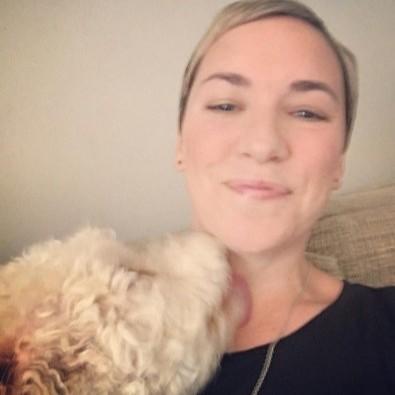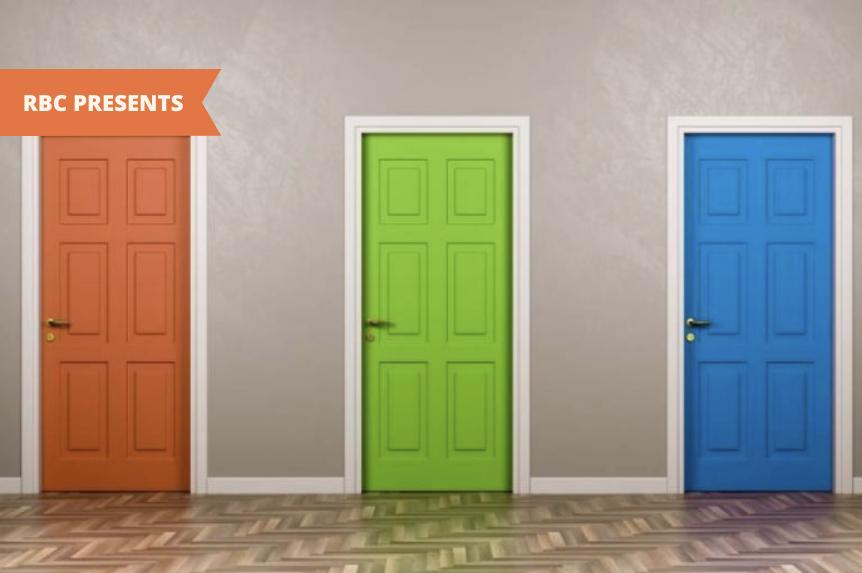Things To Do After Buying Your First Home
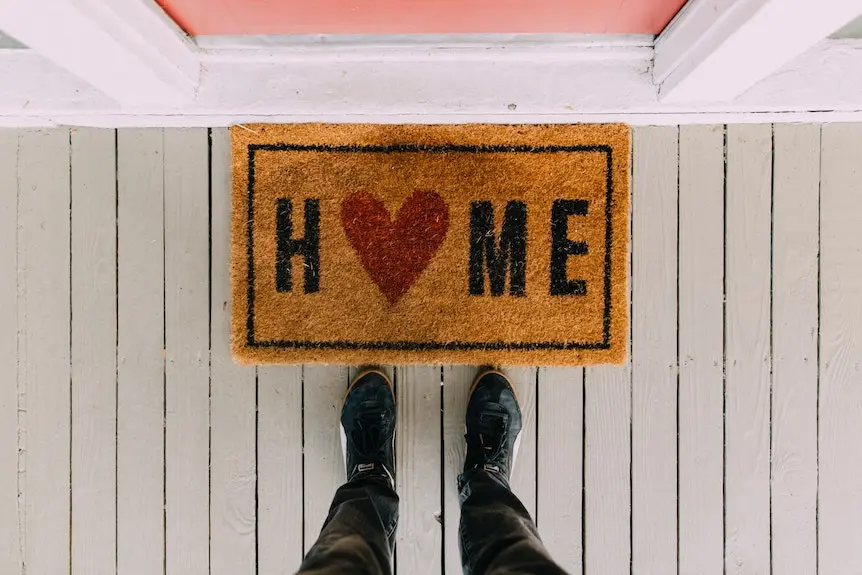
Buying a home is the biggest purchase most people make in their life. And it’s equal parts a heart and head decision. After all, you want a property that will make a great investment over time. But you also want a place to call home, in a neighbourhood you will make many happy memories.
It’s not just the fiscal and emotional complexities that make it such a landmark event in your life… there’s also just a lot of STUFF to deal with. And you might think you’re through the worst of it when you’ve signed the papers, but (hate to break it to you) there are even more items you need to prioritize and work through…
Don’t worry: A trusty to-do list is your best friend and we’ve assembled a handy one for you here!
Get on top of your paperwork
You’re probably feeling burned out from all the paperwork it’s taken to get to this point. Buying a home is a significant purchase, so unfortunately it’s not a time to cut corners on all the paperwork. Thankfully, with a little prioritization and focus, you can easily get – and stay – on top of it all!
Handle address updates
For a few months before your moving date, take note of all the times you use your address and the mail you receive. Online retailers you shop from infrequently can be taken care of more organically, but in one fell swoop, you will want to notify the following (as applicable) of your change of address:
Government services
Driver’s license
Health card
Vehicle registration
Canada Post/epost
Canada Revenue Agency
Canada Pension Plan/Quebec Pension Plan
Old Age Security
Employment Insurance
Creditors and services
Phone, cable, internet, and other utilities
Electricity / hydro
Natural gas
Heating fuel company (ask if you receive a deposit refund)
Your financial institution(s)
Insurance companies/broker(s)
Lawyer/notary
Healthcare professionals
Doctor
Dentist
Veterinarian
Other healthcare specialist(s)
Personal contacts
Family
Friends
Employer
Landlord, if applicable
Schools, universities, daycare, if applicable
Lifestyle
Magazines and subscription services
Clubs, associations, and charities
Online retailers and delivery services you use frequently (e.g. Amazon, Ubereats etc.)
Pro-tip: It can take a while to get used to a new address (especially postal codes), so consider saving your new address as a shortcut on your smartphone to make it a little easier!
Set up your insurance
Getting the right insurance is one of the most important decisions you will make after buying a new home. When considering the cost of your insurance, some factors that will be taken into account include:
The type of residence (e.g. single family, multi-family etc.)
How the home is constructed (materials)
The type and age of heating, plumbing, and electrical systems
Fire protection (e.g. proximity to emergency services)
Your claims history and discount eligibility
You can explore cost-saving on insurance with the following:
Try bundling your home and auto policies with a single insurance provider
If you purchased mortgage insurance, consider switching to life insurance instead
Ensure fire alarm, smoke detectors or other security features are installed on your new home
Choose a higher deductible
Now’s the time to make (or update) your will
Do you have a Will? If you don’t, now is the time to make one since you’ve just purchased a large asset. If you do have a Will, make sure it’s up to date.
Indeed, purchasing a new home is one of the most popular times to get your estate planning documents in order, which makes sense after spending hundreds of thousands of dollars on a large asset.
Making a Will can seem like a complicated – and emotional! – experience. But it doesn’t have to be that difficult: With Epilogue, you can get started – and finished – with an easy-to-understand, guided online process. And in as little as 20 minutes, you’ll have estate planning documents that are ready to sign and legally valid!
Understand any warranties
A warranty is considered a safety net for major purchases, whether it’s home electronics or a new home. A warranty gives you recourse if there’s a problem or defect with your purchase. The requirements for home warranties vary by province in Canada
Home warranties are not the same as home insurance (that protects your home in case of disasters) but covers more the working parts of your home and protects you if anything unexpectedly breaks in a particular time frame. Warranties are more common on new homes and condominiums.
If you’re buying a resale home or condominium, there are still some home warranty programs that may be available to you. Odds are you won’t have to spend money on them though! The home sellers often choose to get a home warranty and make it part of the sale.
Safety and security are key
You’ve got the keys and you’re moving in – such an exciting time! The first few nights in a new home can be strange though. You might need a little while to get used to all the noises of a new building, especially if it’s an older resale property.
To help you feel safe and secure, though, there are some things you can proactively do:
Locks, keys & security alarms
It’s a personal decision whether you want to change your locks when you move into a new place. It also probably applies more to resale homes than to new homes.
Whether you do or don’t, make sure to go get a full set of extra keys cut right away and have a “back-up” friend or family member who can get into your home should you ever lock yourself out, or if something happens while you’re away.
If your home comes with a security alarm, definitely change the code when you move in.
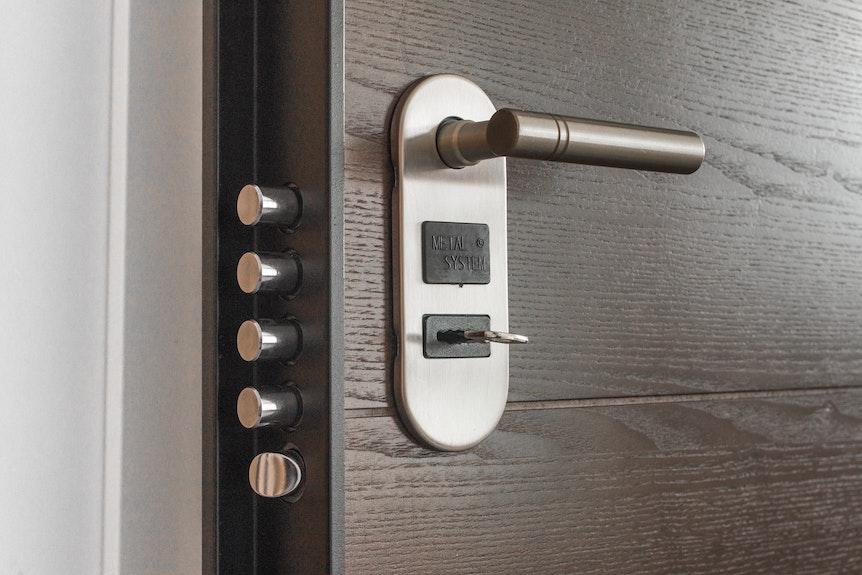
Smoke and carbon monoxide detectors
Immediately change the batteries in your smoke detectors and make sure they’re working. A lot of smoke detectors need replacing after about 10 years, so if you’ve purchased a resale property, think about just replacing them if they look older. Also, consider installing carbon monoxide detectors around your home
It’s always wise to change the batteries in your smoke detectors and make sure they’re working. You can also check to see if there is a warranty or how old they are. A lot of smoke detectors are only good for about 10 years. Also, if you don’t have a carbon monoxide detector built in with the smoke detectors, purchase those and place them throughout your house, too. Safety first!
Set up your utilities
Who wants to live a single day without internet? Not us!
To avoid such a catastrophe, make sure you pre-schedule getting all your utilities set up on, or in advance, of your move-in day. Some utilities will require a service visit and others can be handled over the phone. The utilities you should address can include:
Gas
Water
Electric
Internet
Cable/TV
Note: changing your billing address with these companies is not automatically the same as relocating the service. Make sure you do both!
Finally, you’ll probably have a lot of garbage once you unpack everything, so make sure you know your trash day and understand any local bylaws about waste disposal (particularly if you’ve moved city/province).
Know how things work
Your new home will likely come with a lot of new bells and whistles. Some of this may be familiar to you, but take a moment to make sure you know where the following things are located and how they work. You don’t want to have to figure these things out in an emergency…
Circuit breakers
Your appliances
Shut off valves
Sump pumps
Septic system
Fire escapes (if condominium)
Building amenities (if condominium)
Note all your measurements and specs
If you’re anything like us, the best part about moving into a new home is decorating! Even if you have a lot of existing stuff, odds are you’ll be making various big and small home purchases for months to come as you put your own personal stamp on things.
To make it easier to shop on-the-go, make sure to note all your major measurements on your phone. That way, when you see the perfect vintage rug, or the perfect baskets for your storage closets, you know things will fit.
So, whip out the measuring tape and jot down:
All room and cupboard dimensions
Any nooks or niches where you think you might place furniture
The bulbs used in all your light fixtures (for easy replacement)
Window dimensions for any drapery needs
Note your paint colours (for future touch-ups and colour matching)
Assemble your essential tools
Things break, the power sometimes goes out and – as we’ve learned in 2020 – there can even be shutdowns due to global pandemics. Not to mention, there are cuts, bruises and burns that happen increasingly when you’re doing small jobs around your home (assembling that new furniture comes with its own minor hazards!)
In situations like these, you’ll want a basic toolkit and an emergency kit to help you survive.
Tool kit basics
A screwdriver set
Hammer
Pliers
Wrench
Hex keys
Emergency kit basics
Spare batteries
Flashlight / candles
Matches
Feminine hygiene supplies
Manual can opener
Fire extinguisher
First-aid supplies
Band-aids
Gauze
Healing ointment (e.g. Polysporin)
Painkillers like Tylenol or Advil
Prescription drugs
In general, it is also advisable to have food for you, and any pets, on hand for 3-5 days and to keep a small amount of cash at home for situations that might disrupt electronic transactions.
Finally, also consider getting a small fireproof safe for any important documents like passports, birth certificates etc.
Cleaning / painting
If you’re moving into a resale home, the easiest time to do a big deep clean is before you move in, when all the rooms are empty. You may even want to hire professional cleaners to do things like clean carpets and drapery.
Similarly, if you’re planning to paint your home, do it before all your furniture arrives. Painting is the most impactful and affordable way to transform a home and make it feel “yours.” So think about taking the time to do that work before everything gets cluttered and you get caught up in your day-to-day.
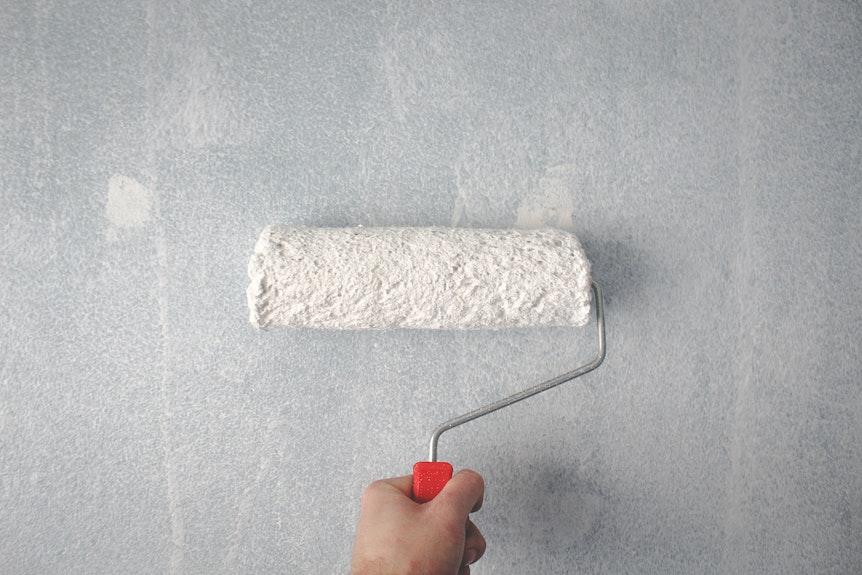
Speaking of that move-in clutter, it’s also a good idea to do a good “Marie Kondo” style purge before you move. There’s no point hauling clothes you haven’t worn in years or pieces of furniture you hate. As always, there are good homes any gently worn pieces can go to, so instead of transporting that stuff to your new home, take it to a donation bank or charity!
Develop a home maintenance plan
Beyond your move-in day, your home is an investment that needs to be maintained. All those chores can add up, so we recommend developing a seasonal maintenance plan that you can checklist through routinely!
Have a seasonal maintenance plan
Certain repairs, tasks and cleaning activities have a seasonal nature. We recommend having a seasonal plan of the things you want to take care of. You could include:
Cleaning your dryer hose and vent (annual)
Changing or washing HVAC filters (annual)
Draining your water heater and rinsing out any sediment (annual)
Cleaning your gutters (annual)
Check the caulk on your windows (annual)
Clean your window screens (seasonally)
Cleaning out your refrigerator and freezer (bimonthly)
And so on…
There are lots of home maintenance apps that can help you list and prioritize these kinds of tasks by week, month and season.
Start saving for emergencies
Home maintenance will only take you so far… at some point, you’ll inevitably have to replace certain items. It could be an appliance. It could be your roof.
Having savings set aside for these emergencies will take the sting out of these expenses, when they inevitably arise.
Manage your home investment
A home will typically be one of the largest assets in your name and small wins can translate to huge gains over a lifetime. Things to consider:
Keep an eye out for changes in mortgage rates that could enable you to break your mortgage early and lock in savings
If you start to build up home equity, consider leveraging that as an emergency fund
Look for refinancing opportunities where you can pull the equity out of your home as a cost-effective source of financing for large ticket items such as renovations, education or investment properties
Markets can shift quite fast, so it’s best if you work with a professional to make sure nothing gets overlooked.
But of course… don’t forget the fun stuff!
Phew! That’s a lot of to-dos! Moving into a new home is a lot of work. But don’t forget to stop and smell the roses, and to celebrate this huge life milestone!
Meet your neighbours
Whether you’re the outgoing type who wants to get to know everybody around you, or more of an introvert who keeps to themselves, it’s good to get to know your neighbours.
While friends and family are likely your go-to resources, knowing your neighbours can be a source of reassurance and support, especially during times of stress. They can also have great recommendations of local services, whether that’s a handyman or the best pizza in the ‘hood!
So take a moment, and introduce yourself to your neighbours!
Designing and decorating
Whether you’re a design junkie or not, you’ll want to make your home a relaxing place to lounge and entertain.
Decorating can be an expensive pursuit. So it helps to prioritize your wishlist and pace yourself accordingly. Invest in larger pieces that do a lot of “work” – like upholstery and dining chairs.
But you can find cheaper alternatives for accent pieces and delay those purchases until much later.
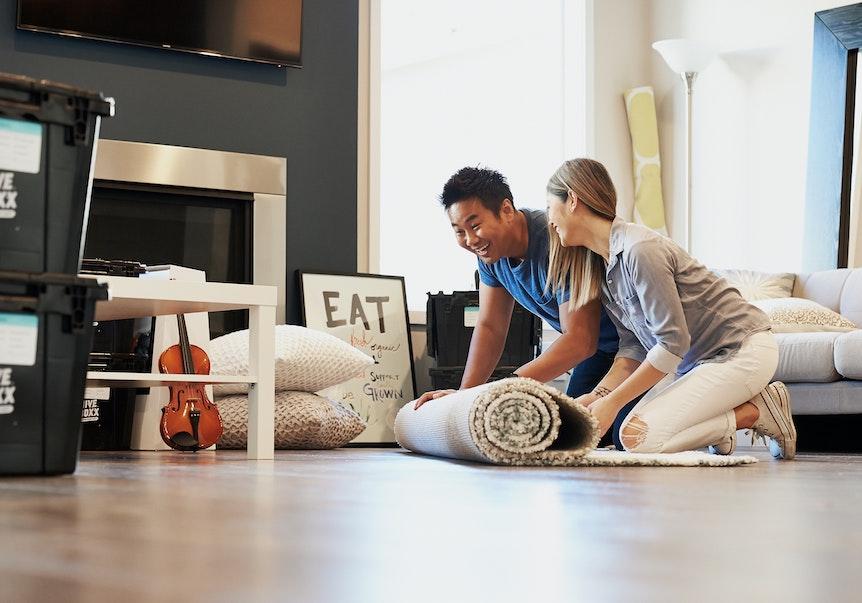
The best homes are often decorated slowly, so don’t feel pressure to get everything done overnight. Allow yourself to get to know your home and discover your own individual style in it.
Above all, enjoy the process!
